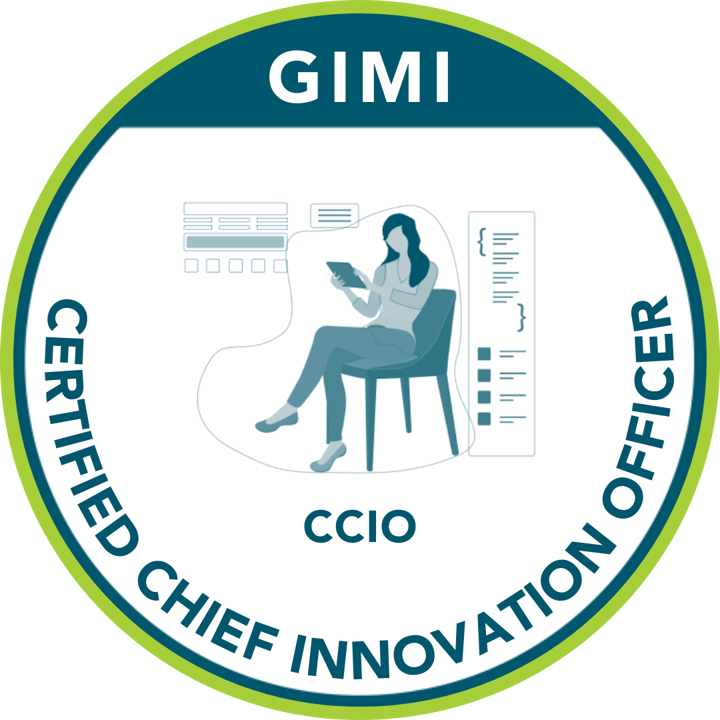Prepare for the Future of IT Management With a CIO Accreditation
In an era where innovation evolves at an extraordinary pace, the function of IT management is more essential than ever. Protecting a CIO certification not only solidifies your authority in aligning IT campaigns with overarching business goals yet additionally cultivates necessary competencies such as tactical reasoning and threat management. As organizations come to grips with arising challenges in cybersecurity and digital change, those furnished with this credential are positioned to lead effectively. The ramifications of this accreditation expand past individual advancement, influencing more comprehensive market fads and profession trajectories-- what actions might you take into consideration to place on your own for this future?
Value of CIO Accreditation
CIO accreditation is progressively recognized as an important credential for IT leaders seeking to validate their knowledge and enhance their specialist reliability. In an era where modern technology goes to the forefront of business approach, the need for competent IT executives is climbing - CIO certificate and course. This qualification works as a criteria for leadership capacities, demonstrating a commitment to remaining informed concerning market trends, arising innovations, and best techniques
Additionally, obtaining a CIO qualification can significantly boost an IT leader's bankability. Organizations are progressively looking for experts who have not only technological knowledge yet also the critical vision needed to align IT efforts with business goals. A certified CIO can successfully communicate the value of modern technology investments to stakeholders, driving business success.
The certification process often includes rigorous training and analysis, guaranteeing that prospects are well-equipped to deal with complex difficulties in the IT landscape. By attaining this credential, IT leaders not only improve their very own capability yet also add to constructing a more powerful, much more resistant IT structure within their organizations. As services browse electronic change, the value of CIO qualification can not be overstated; it is an important financial investment in future management possibility.
Key Skills Established With Qualification
Navigating the intricacies of IT management calls for a varied collection of abilities, much of which are developed with the CIO accreditation procedure. This strenuous program outfits aspiring CIOs with important proficiencies that are crucial for reliable monitoring and critical decision-making in technology-driven environments.
One key ability developed through certification is strategic reasoning. CIO prospects find out to straighten IT campaigns with organization objectives, making sure that innovation works as a driver for organizational growth. Additionally, the certification process stresses economic acumen, making it possible for future CIOs to budget plan efficiently, analyze ROI on modern technology financial investments, and make notified monetary decisions.
Management and interaction skills are also crucial components of the qualification educational program. Participants gain understandings into team characteristics, dispute resolution, and stakeholder interaction, which are essential for fostering cooperation across departments. In addition, a deep understanding of threat management is cultivated, empowering CIOs to recognize prospective threats and develop robust reduction methods.

Occupation Improvement Opportunities
Pursuing a CIO certification opens up doors to many occupation development opportunities within the IT field. This credential not just validates your knowledge and skills yet likewise settings you as a solid candidate for management duties. CIO certificate and course. Organizations significantly look for certified specialists to drive tactical campaigns and handle intricate IT atmospheres
With a CIO accreditation, you enhance your qualification for elderly management settings, such as Principal Info Police Officer, IT Director, or VP of Modern technology. The certification signals your dedication to continuous discovering and your ability to line up modern technology with company objectives, making you a valuable possession to any type of organization.
In addition, certified CIOs usually command higher helpful resources wages and enjoy higher work security compared to their non-certified peers. Networking chances additionally increase considerably, as accreditation programs often connect you with market leaders and fellow specialists.

Sector Fads Impacting IT Leadership
As the technology landscape progresses, IT management must adapt to a range of sector fads that are reshaping organizational concerns and functional strategies. One substantial trend is the accelerating adoption of cloud computer. Organizations are progressively migrating to cloud-based services to improve scalability and minimize prices, demanding IT leaders to develop know-how in cloud modern technologies and monitoring.
Another essential trend is the emphasis on cybersecurity. With the rise in cyber risks, IT leaders should prioritize safety procedures and cultivate a society of safety understanding within their groups. This CIO certificate and course includes executing robust protocols and buying security training for employees.
Additionally, the assimilation of artificial knowledge and artificial intelligence is changing decision-making processes. IT leaders are expected to leverage these modern technologies to drive efficiency and innovation, making data-driven choices that line up with service goals.
.png?disable=upscale&width=1200&height=630&fit=crop)
Steps to Obtain a CIO Accreditation
Exactly how can aspiring IT leaders properly safeguard a Principal Information Officer (CIO) qualification? The trip starts with identifying a reliable qualification program that straightens with specialist objectives. Popular choices include go now the Certified Information Equipment Protection Specialist (copyright) and the Licensed Chief Information Police Officer (CCIO)
Following, candidates need to examine their qualifications versus the program's prerequisites. Most qualifications need a mix of education, typically a bachelor's level in IT or an associated area, together with numerous years of appropriate work experience in supervisory roles.
When eligibility is verified, aspiring CIOs must register in primary courses. These training courses typically cover essential subjects such as IT strategy, administration, risk monitoring, and leadership abilities, equipping prospects with the necessary expertise to be successful.
After finishing the coursework, candidates need to prepare for the accreditation test. This involves examining research materials, taking method examinations, and possibly joining study hall for collective understanding.
Conclusion
In conclusion, acquiring a CIO accreditation serves as a critical benefit in the advancing landscape of IT leadership. Thus, going after a CIO accreditation is an aggressive step towards reliable management in innovation.